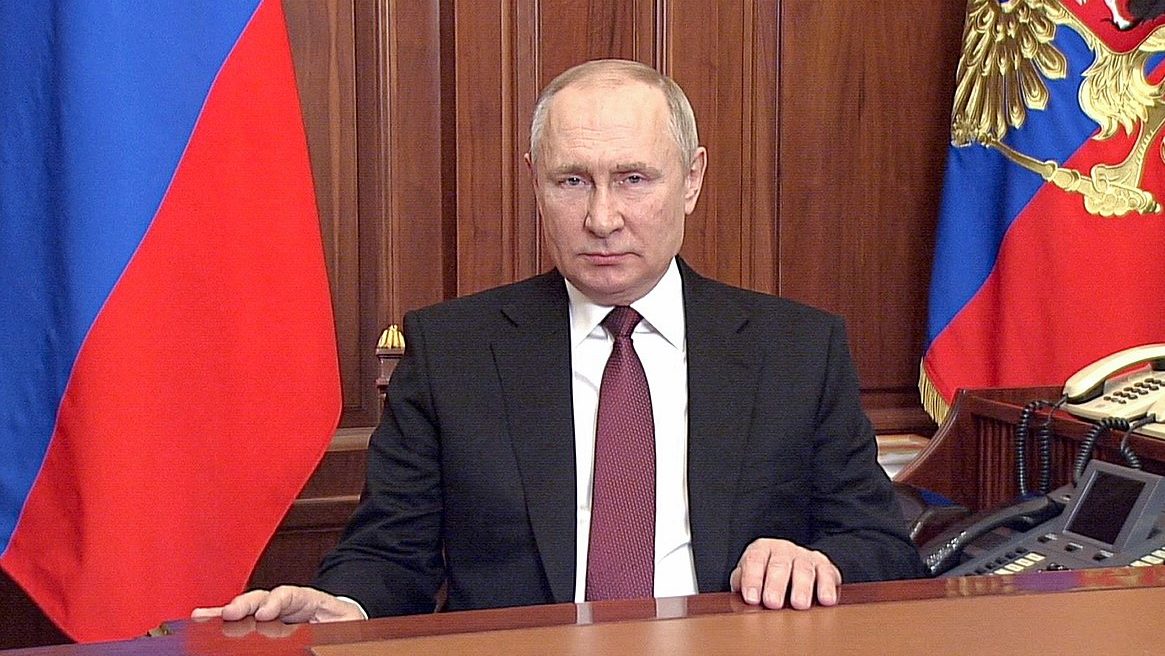Uncalculated Repercussions of Putin’s Arrest Warrant
Asharq Al-Awsat, London, March 18
Last week’s arrest warrant issued by the Pre-Trial Chamber of the International Criminal Court against Russian President Vladimir Putin and Russia’s Presidential Commissioner for Children’s Rights Maria Lvova-Belova is a significant development in the Ukraine war. It may be even more significant in terms of setting boundaries in an era considered to be the waning years of American “unipolarity.” The charges against Putin and the presidential commissioner relate to their alleged direct involvement in the unlawful deportation of thousands of children from Ukrainian territory to Russia. Ukrainian President Volodymyr Zelenskyy claims that the actual number of children removed from orphanages and care homes since February 24, 2022 could be much more than 16,000. Reports suggest that these children have been offered for adoption or subjected to “rehabilitation.” It is worth highlighting a few matters. First, Russia does not recognize the jurisdiction of the International Criminal Court nor does it consider its decisions valid or legally acceptable. This was evidenced by the remarks from Kremlin spokesperson Dmitry Peskov, Foreign Ministry spokeswoman Maria Zakharova, and Russian delegate to the United Nations Vassily Nebenzia. Nebenzia further declared that the court is “biased, politicized, incompetent and ready to practice false justice,” and condemned it for failing to hold those responsible for the illegal US invasion of Iraq accountable. Second, legal battles – regardless of whether the International Criminal Court is truly politically independent or not – remain a form of political pressure closely linked to military escalation and economic blockade. Presently, the Russian leadership feels that it is engaged in a war with the North Atlantic Treaty Organization (NATO), which involves extending its area of operation close to Russia’s borders after incorporating Ukraine into it. This is the national justification for the preemptive “defensive” war that the Kremlin is presenting to the Russian people, especially those Russians who do not accept the existence of ethnic, linguistic or cultural differences between Russia and Ukraine. Third, the issue of threatening and harming children is an affront to the human conscience. Taking action to protect them from those who are perpetrating harm, or to hold the party responsible for this harm accountable, is a necessary step in any political conflict. However, the current approach to international judicial action in defense of the children of Ukraine is not mirrored in the defense of the rights of the children of Syria. Despite the world having seen the tragedies of hundreds, or even thousands, of children dying from gas attacks, bombing and drowning in the sea, those responsible for these atrocities, such as President Putin and his diplomats and officers, have not been held accountable. Similarly, there has been no international justice for those involved in other crimes against children, including murder, exploitation and forced recruitment. Is justice fragmented when right becomes selective and the application of penalties is temperamental and self-interested? The court that issued an arrest warrant against President Putin and his commissioner for children’s affairs undoubtedly fulfilled its duty, but is it in a position to practically implement its will and achieve what it considers to be right? Putin’s position and ability to influence the global security climate is not comparable with other politicians, such as the late Libyan President Moammar Gadhafi, former Sudanese President Omar Hassan Ahmad Al Bashir, former Chadian President Hissen Habré, and former Serbian President Slobodan Milosevic. Vladimir Putin’s Russia faces a unique situation in the current international system, marked by rising tensions ranging all the way from Ukraine in the West to Taiwan in the East. The major European countries are facing complications: French President Emmanuel Macron is in an uncomfortable position with his citizens’ vehement objections; the Conservative government in Britain is paying the price for its dogmatism daily; Germany’s coalition government is far from ideal, and Italy is getting a taste of a neo-fascist government. Unilateral action against Moscow may not yield the desired results, and it is uncertain what impact it may have. The two most influential nations, China and the United States, are engaging in a power struggle. Chinese President Xi Jinping is set to meet with Russian President Vladimir Putin in Moscow to discuss the matter. Meanwhile, Washington is intensifying its rivalry with Beijing by extending the scope of its nuclear capabilities to include Australia. It is uncertain how Putin will respond to this situation. Is it possible that he is being underestimated? – Eyad Abu Shakra (translated by Asaf Zilberfarb)


